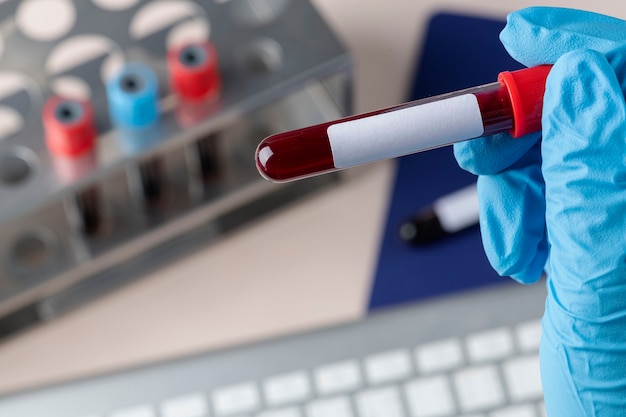
Many women get worried when they notice their period blood turning black. This dark color can have several causes. Typically, black or dark blood happens when it’s not expelled quickly from the uterus and gets oxygenated, changing from red to black. Let’s explore what black period blood means, its causes, and how to treat it.
### Causes of Black Period Blood
1. **Part of Normal Periods**:
Black blood can appear at the start or end of your period, as the uterus sheds old blood and tissues. If the discharge is excessive, consult a doctor.
2. **Uterine Polyps**:
Polyps in the uterus can interrupt blood flow, causing it to darken before it’s expelled.
3. **Hormonal Imbalances**:
Hormone fluctuations can result in black period blood.
4. **Ovulation**:
During ovulation, the follicle breaks and some dark blood might appear a week after menstruation ends.
5. **Pregnancy**:
Dark blood after periods could be a sign of implantation bleeding or early pregnancy. However, it might also indicate infection or disease.
6. **Obstruction**:
Blockages like an imperforate hymen can prevent blood from exiting properly, leading to darkened blood.
7. **Delayed Period**:
Menstrual blood can darken if it’s trapped and becomes oxidized.
8. **Infected Vagina**:
Infections can cause black period blood, often accompanied by pain and a foul smell.
9. **Miscarriage**:
Black blood during pregnancy might indicate a miscarriage. Consult a doctor immediately if concerned.
10. **Stress or Depression**:
Stress and depression can cause irregular periods and black blood due to delayed shedding of the uterine lining.
11. **Medications**:
Some medications can lead to black period blood as a side effect.
12. **End of Cycle Discharge**:
Old blood left in the uterus towards the end of your cycle can appear black.
13. **Blood Clots**:
While common during menstruation, consistent black clots require medical attention.
14. **STD Infection**:
Infections, including STDs, can sometimes cause dark period blood.
15. **Extreme Changes in Weight**:
Significant weight changes can disrupt your menstrual cycle, leading to black blood.
16. **Birth Control/Contraceptives**:
Hormonal changes from contraceptives can cause dark period blood, especially in the first few months of use.
17. **Uterine Fibroids**:
Fibroids can cause abnormal bleeding and black period blood.
18. **Perimenopause**:
As you approach menopause, periods can become irregular and result in darker blood.
19. **Cancer**:
A rare cause, but possible; black blood can indicate uterine or reproductive cancers.
20. **Pelvic Inflammatory Disease (PID)**:
This infection affects menstrual cycles and can cause black discharge.
21. **Retained Menses**:
Blood retained in the uterus or vagina, often due to blockages, appears black.
### When to See a Doctor
Consult a doctor if black period blood is accompanied by severe cramping, burning sensations, unusual pain during sex or urination, loss of appetite, mood swings, or abnormal bleeding.
### Remedies for Black Period Blood
1. **Hydration**:
Drink plenty of water to help flush out toxins and keep your blood thin.
2. **Avoid Infections**:
Wear cotton underwear, keep the area clean, and avoid harsh soaps. Practice safe sex to prevent STDs.
3. **Manage Stress**:
Techniques like meditation, aromatherapy, and regular exercise can relieve stress and balance your hormones.
4. **Stop Using Certain Contraceptives**:
Consider alternatives and consult your doctor if you suspect contraceptives are the cause.
5. **Dietary Changes**:
A balanced diet with plenty of fruits, vegetables, and healthy fats can improve overall menstrual health.
6. **Health Supplements**:
Vitamins and minerals such as Vitamin C, E, iron, and zinc can support reproductive health.
7. **Intercourse**:
Some suggest that sex can help regulate menstrual cycles by promoting uterine contractions.
### Conclusion
Black period blood can be harmless in some cases but requires attention if it’s regular, has a foul smell, or comes with severe symptoms. Always discuss any unusual changes with your gynecologist to rule out serious conditions. Managing stress, maintaining good hygiene, and ensuring a healthy diet can help prevent irregular periods and black menstrual discharge.